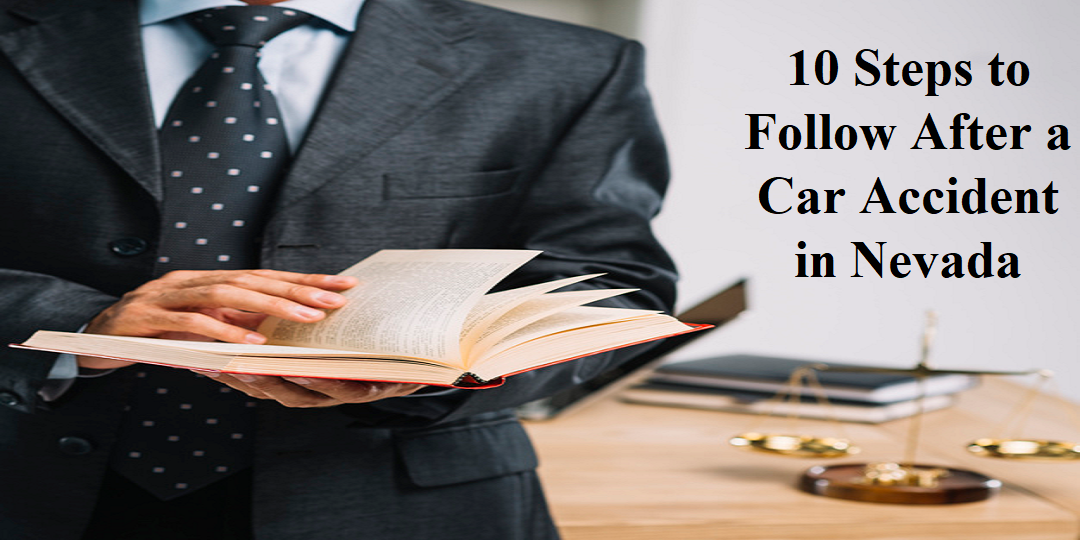1. Ensure Your Safety
If you have been in a car accident in Nevada you should immediately exit your vehicle and ensure that you get to safety so you are not struck again. If you are able to, direct traffic and attend to any involved persons that cannot help themselves. If the injuries are relatively minor and the other vehicles are endangering other motorists, do what you can to move or direct them to a safe location.
2. Communicate with the Other Driver(s)
Advise the other driver(s) not to leave and inform him or her you are calling the police. Call the police right away. If you or another requires medical attention, request an ambulance as well.
3. Call the Police
Make sure to call the police. Remember to relay your version of the events as well as any evidence you have compiled to the police. Allowing the other driver to dictate how the accident report is drafted will not help you down the road. Traffic Accident Reports are always important pieces of evidence.
4. Do NOT Admit Fault
You are not an attorney, police officer or accident reconstructionist. Worse, you were just involved in a traumatic event. Whether you were at fault or not, your natural tendency may be to say sorry and accept blame. Do NOT do this. Statements and admissions you make at the scene could ultimately prove to be very damaging evidence. Furthermore, if you were under the influence, contact one of our Las Vegas dui lawyers immediately for your next steps.
5. Exchange Information with the Other Driver(s)
Nevada law requires all drivers involved in a car accident that results in death, personal injury or property damage to stop at the scene of the crash and provide the following information to the other driver: name, address, registration number and car insurance.
6. Document, Record and Photograph
You can only recover in a lawsuit if you prove the other driver was at fault for the accident (or more at fault than you were). Even when law enforcement is summoned, they do not always issue tickets or generate accident reports. Trials may not happen until years later and liability often turns on the testimony of expert witnesses whose opinions are based solely upon evidence collected at the time of the accident.
Take down names, license plates, car models, etc. Document the traffic lights, stop signs, vehicle directions, estimated speeds and your body movements as a result of the collision. Take photos of skid marks, vehicle damage, vehicle locations, etc. Talk to witnesses that stuck around and obtain their contact information. Evidence you collect and safeguard at the scene could end up establishing your claims down the road. Today’s phones and technology make this step simple.
7. Seek Medical Treatment for Your Injuries and Symptoms
I cannot emphasize this step enough. You were in a car accident. If you were not at fault you are entitled to be compensated for your injuries and damages. Injuries and damages in personal injury cases are often established through medical treatment, medical records, and expert testimony. Now is not the time to be tough. Be honest with yourself and treat for all injuries and symptoms you experience. If you are experiencing symptoms at the scene, request an ambulance from law enforcement.
8. Report the Accident to all Insurance Companies
Make sure to report the accent to both your insurance company as well as the insurance companies of the other driver(s) as soon as you can. Your insurance policy likely contains a clause requiring you to promptly report. It is not a bad idea to create a record of your injuries right away as well.
9. Do NOT Speak to the Other Driver’s Insurer
Other than reporting the accident, there is no need for you to speak with the other driver’s insurer. You can even ask your insurer to contact the other insurer to report the accident. The other driver’s insurer is not looking out for your best interests. They are looking to save money on your claim anyway they can, including getting you to settle quickly without the benefit of an attorney. Things you say to them could be used against you down the road. In most cases, it takes months for your injuries to resolve.
10. Hire an Attorney
Insurance adjustors are employed for the specific purpose of picking your claim apart and paying you as little as possible. It is imperative that you hire an attorney that appreciates the value of your claim and can effectively advocate your interests. The personal injury lawyers at Hayes Wakayama will meet with you for a free and confidential consultation.
Contact us today to get started.
